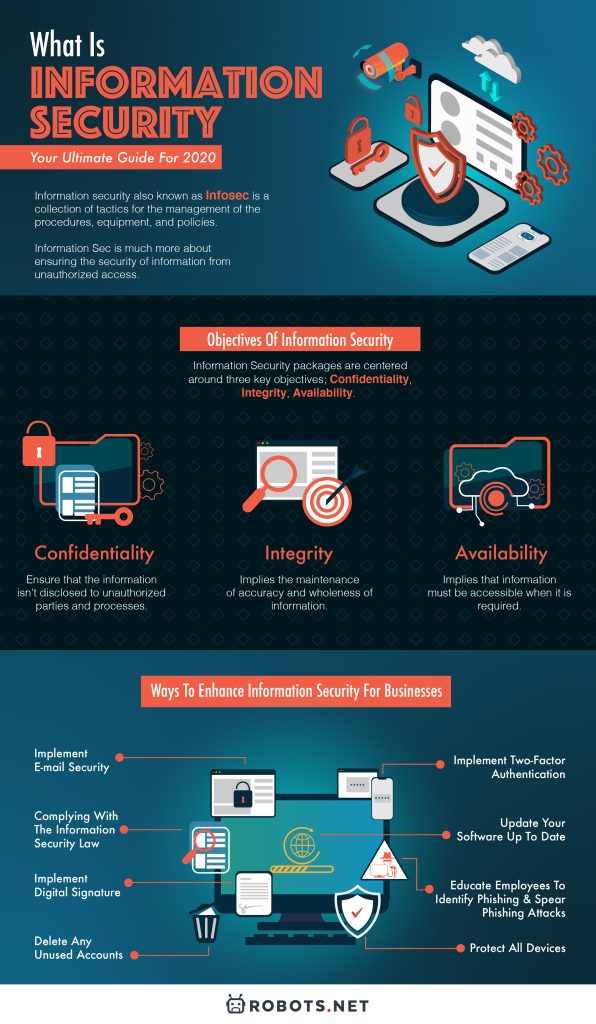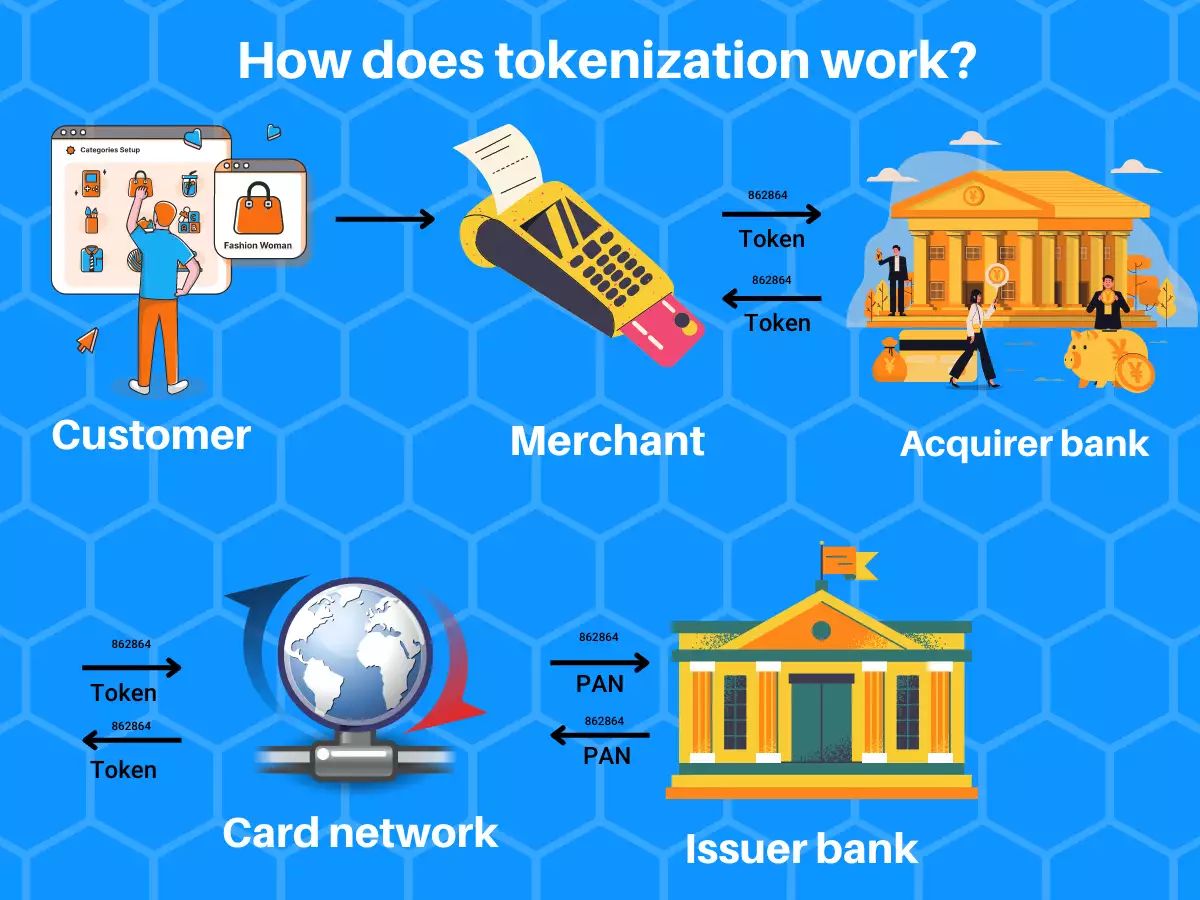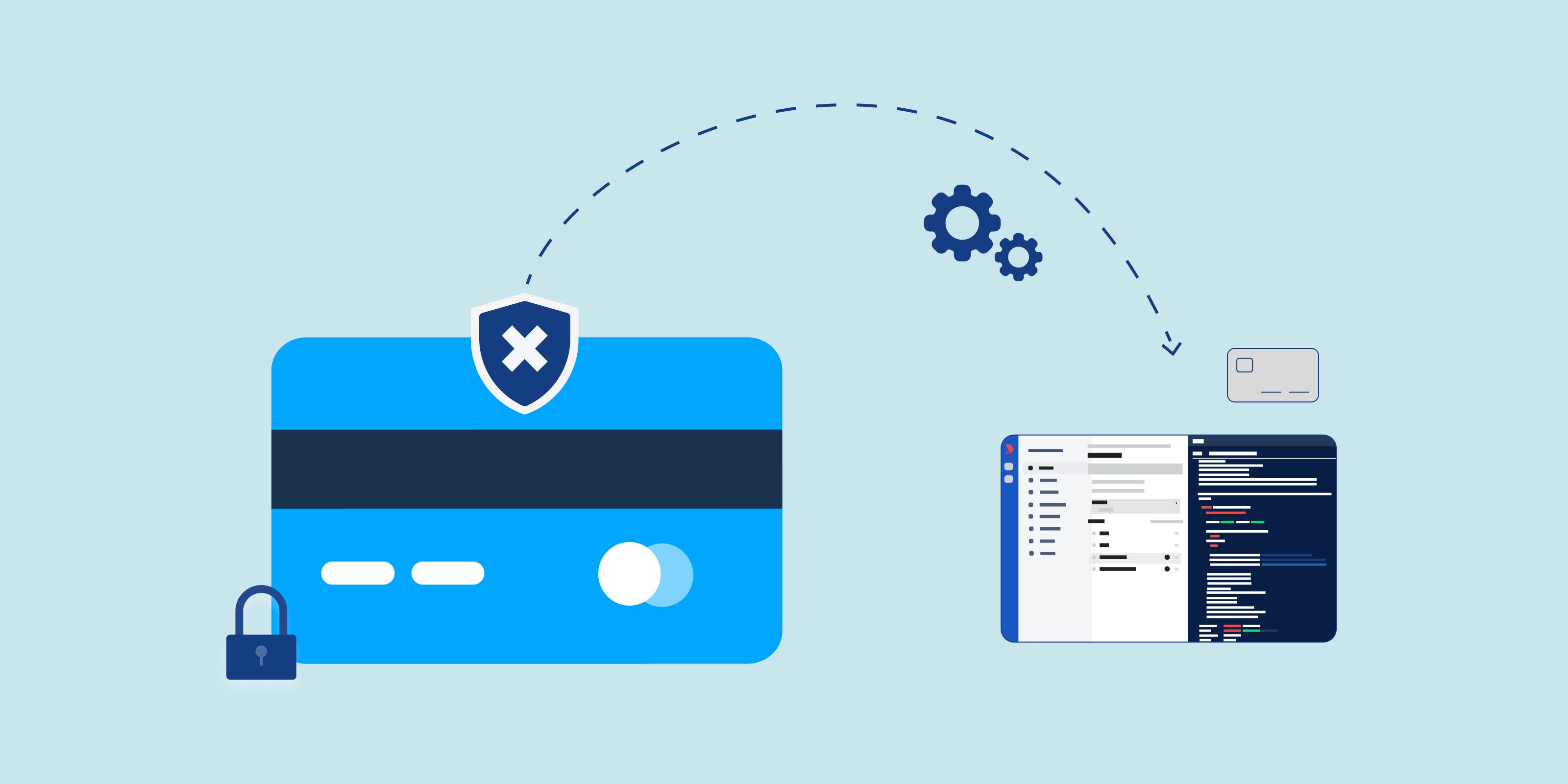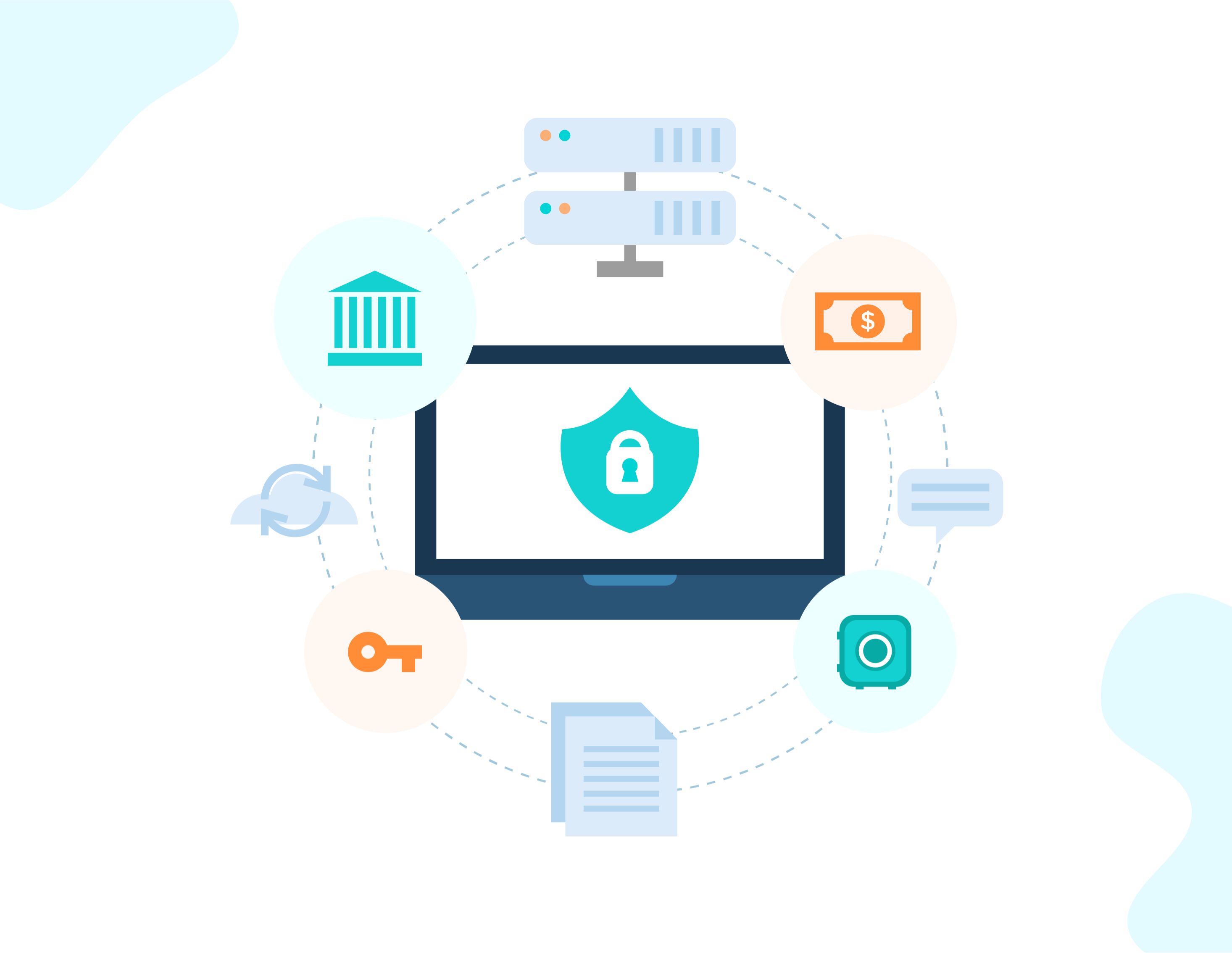Information security also known as infosec is a collection of tactics for the management of the procedures, equipment, and policies essential for the prevention, detection, documentation and countering potential threats to digital and non-digital information.
Many big businesses utilize a devoted security organization for handling their businesses’ information security programs. As a result, the security group commonly performs the role of risk management.
The worth of any business depends on its information resources. Therefore, the security of such information assets is vital for a business to function optimally and remain a credible and trustworthy organization.
Information Security is much more about ensuring the security of information from unauthorized access. It is the procedure for the prevention of unauthorized access, utilization, discovery, interference, alteration, assessment, copying or destruction of information. Information that businesses need to secure can be a physical or electronic asset and covers a lot of research areas including cryptography, mobile computing, cyber Forensics, Online Social Media and so on.


Objectives of information security
Information Security packages are centered around three key objectives; Confidentiality, Integrity, Availability. These triads are commonly known as the CIA.
The three objectives prevent sensitive information of an organization from getting to authorized parties (confidentiality), inhibit unauthorized alteration of information (integrity) and ensure the information is made accessible to the authorized parties when necessary.
Confidentiality
Commonly needs the utilization of encryption and encryption keys to ensure that the information isn’t disclosed to unauthorized parties, persons and processes.
Integrity
Implies the maintenance of accuracy and wholeness of information. It ensures that when the information is decrypted, it will be the way it was when it was originally written without any alteration.
Availability
Implies that information must be accessible when it is required. Availability makes certain that fresh data can be utilized in a well-timed manner and that it doesn’t take a lot of time to restore the backup information.
Assurance
At the center of Information Security is assurance. Assurance implies the processes of safeguarding the CIA of information and making sure that information compromise doesn’t occur in any way where there are critical issues. These issues can include things like natural disasters, system/server malfunctions, loss of device and many more.
Therefore, the information security field has progressed and evolved greatly recently and currently, it proffers various specialization areas which include networks and allied infrastructure, applications and database security, security testing, the audit of information systems auditing, business continuity plan and many more.


Importance of information security
Information security ensures that the confidential information of businesses is not made available to unauthorized users. Businesses face a lot of threats to private information. These can come in a lot of ways including malware and phishing attacks, identity theft and ransomware attacks.
To discourage attackers and minimize your business vulnerabilities at different points, you need to implement multiple security controls and co-ordinate it as part of a layered defense in security strategy. As a result, this ought to mitigate the impact of an attack. To be ready for a security breach, businesses ought to have a pre-planned incident response plan (IRP). This will permit them to manage and minimize the damage, eliminate what causes it and implement up-to-date defense controls.
Information security protocols and processes commonly include physical and digital security methods like mantraps, encryption key management, detecting network intrusion issues, implementation of password policies and complying with regulation. Businesses may need to carry out a security audit to estimate their capacity to maintain secure systems.
Ways To Enhance Information Security For Businesses


There are a lot of things that businesses could do to enhance information security. Some of the ways to improve your business through information security include the following:
1. Implement e-mail security
Businesses have plenty of confidential information. It can be risky to send confidential information through emails. Nevertheless, there are many instances where businesses need to send invoices or other information in pdf-format.
Hence, it is very essential to secure your confidential business e-mails to ensure that they get to the right destination unaltered.
2. Complying with the information security law
You can employ the services of E-mail Data Loss Prevention (DLP) companies to make certain that you follow information security guidelines while sending your e-mail message. They can equally help you to prevent accidental data leaks that may arise due to human mistakes.
Privacy laws and legislation control the storage and obliteration of confidential data. It is equally vital for businesses to implement best practices when destroying any pieces of information no longer required.
3. Implement Digital signature
Businesses may take some time to fulfill the processes of physical signature which involves the utilization of paper, pen, and posting of mail. This could delay operation in the service industry if the CEO is not on sit. However, with the use of a digital signature, it is much easier and faster to sign a business agreement anytime and anywhere so long as one has a device connected to the internet.
Finally, this will enhance customer satisfaction, reduce costs and boost your profit by developing and improving business procedures with information security.
4. Delete Any Unused Accounts
A simple way for an attacker to gain unauthorized access to a business network is to log in to your system with an old credential. If you have used many employees that no longer work with you or moved from an old system to a new one, ensure you delete the old accounts to eliminate any security threat and vulnerability that may arise through them.
5. Implement Two-Factor Authentication
You should implement two-factor authentication to give your login credentials added security. This is commonly a simple process that could be registering your phone number or installing an app. While it looks simple, it makes it a bit more difficult for attackers to break into your system.
6. Update Your Software Up to Date
Form the habit of updating your software whenever the pop up comes. Unpatched software vulnerability can lead to a large data breach, for instance, Equifax. So, stay safe always by installing updates anytime it pops up even if it is at an inconvenient time.
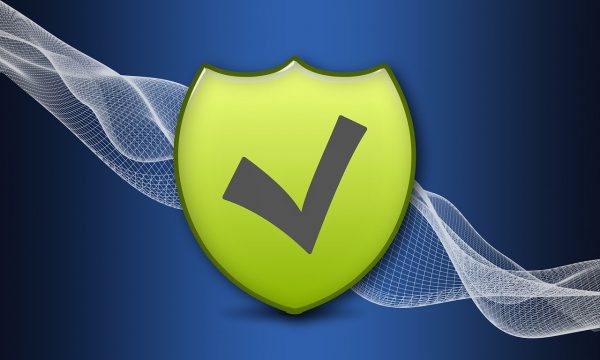

7. Educate employees to identify Phishing and Spear Phishing Attacks
Two common attack methods hackers use to gain access to a business network is through phishing and spear-phishing attacks. A phishing attack is a more generalized attack. On the other hand, spear-phishing is more personalized to a target person and it commonly appears very convincing. Hence, you can safeguard your business from these attacks by providing adequate training to your employees.
8. Protect all Devices
The development of technology presently means that some business has remote workers. Hence, do ensure that your remote employees’ devices have adequate protection and security. For instance, they must never sign in to the company network and leave their devices unattended. They must also never log into the company network through public Wi-Fi.
Conclusion
Information security is a very significant part of any business. By taking essential steps to ensure information security, businesses are not only boosting their customer’s confidence, but they are also more credible and operate more competitively.
